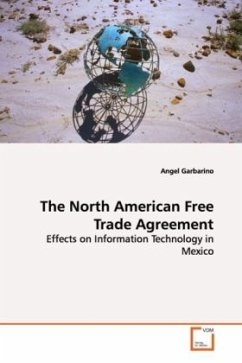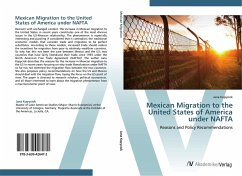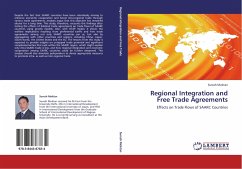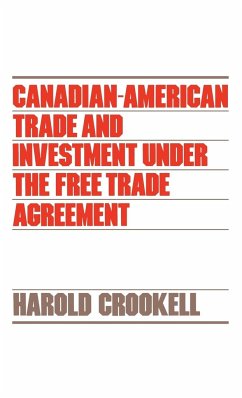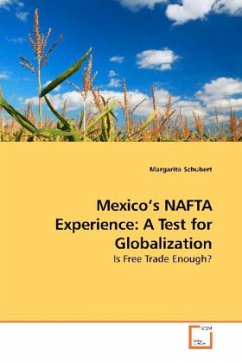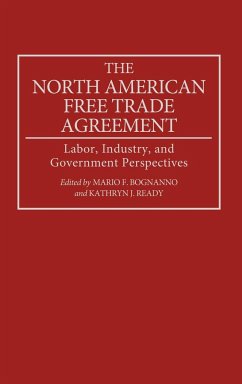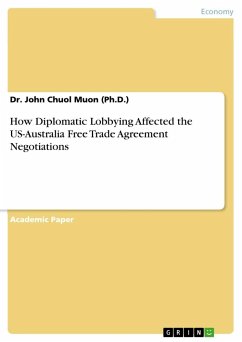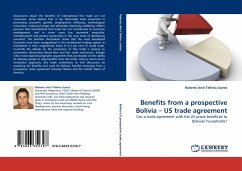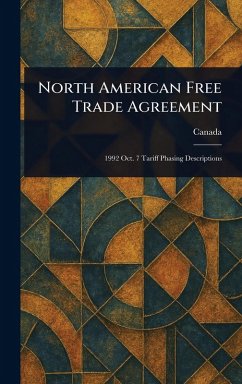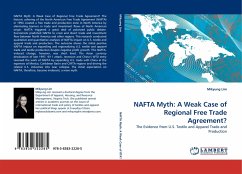
NAFTA Myth: A Weak Case of Regional Free Trade Agreement?
The Evidence from U.S. Textile and Apparel Trade and Production
Versandkostenfrei!
Versandfertig in 6-10 Tagen
39,99 €
inkl. MwSt.

PAYBACK Punkte
20 °P sammeln!
NAFTA Myth: A Weak Case of Regional Free Trade Agreement? The historic ushering of the North American Free Trade Agreement (NAFTA) in 1994 created a free trade and production zone in North America by eliminating barriers in trade and investment flows of North American origin. NAFTA triggered a great deal of polarized public debate. Economists predicted NAFTA to creat and divert trade and investment flow between North America and other regions. This research conducted qualitative and quantitative analyses of NAFTA impact on U.S. textile and apparel trade and production. The outcome shows the in...
NAFTA Myth: A Weak Case of Regional Free Trade Agreement? The historic ushering of the North American Free Trade Agreement (NAFTA) in 1994 created a free trade and production zone in North America by eliminating barriers in trade and investment flows of North American origin. NAFTA triggered a great deal of polarized public debate. Economists predicted NAFTA to creat and divert trade and investment flow between North America and other regions. This research conducted qualitative and quantitative analyses of NAFTA impact on U.S. textile and apparel trade and production. The outcome shows the initial positive NAFTA impact on expanding and regionalizing U.S. textile and apparel trade and textile production despite negative profit growth. This NAFTA-induced change, however, was short lived. The Asian currency devaluation of late 1997, 9/11 attack, recession and China s WTO entry reversed the work of NAFTA by expanding U.S. trade with China at the expenses of Mexico, Caribbean Basin and CAFTA regions and driving the related U.S. industries into near collapse. The initial expectation on NAFTA, therefore, became irrelevant, a mere myth.



